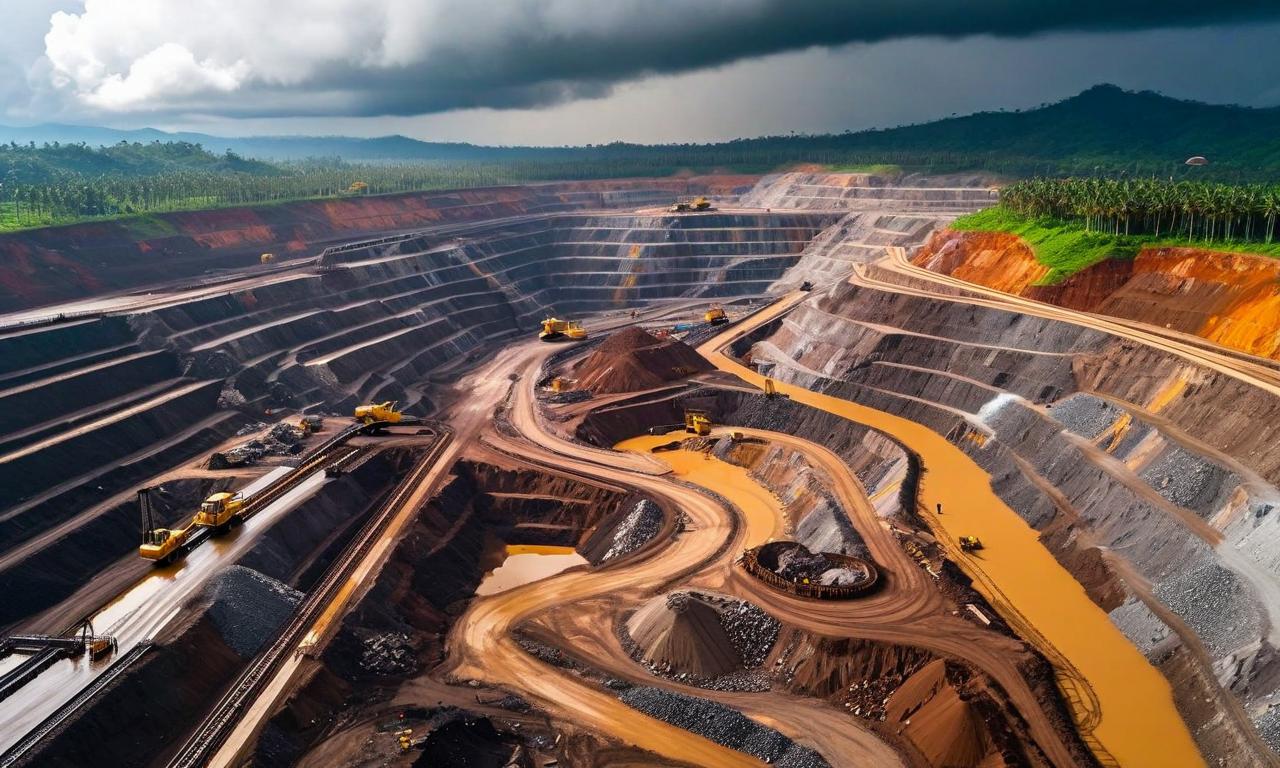Nickel Prices Surge as Indonesia Seizes Part of World's Largest Nickel Mine
The Indonesian government has seized 148 hectares of PT Weda Bay Nickel mine, citing permit violations. This action caused nickel futures on the LME to climb 1.00% to $15,305.00 per ton. While Eramet SA, a shareholder, reports no current operational impact, the seizure aligns with Indonesia's crackdown on illegal mining. The event highlights supply risks in Indonesia, which produces over half of global nickel output. Indonesian smelters were already facing challenges due to high rainfall and low mining quotas. The nickel market disruption also affected copper and aluminum prices on the LME.

*this image is generated using AI for illustrative purposes only.
Nickel prices on the London Metal Exchange (LME) saw a notable uptick following news of the Indonesian government's seizure of a significant portion of the world's largest nickel mine. The development has raised concerns about potential supply disruptions in the global nickel market.
Government Action Targets PT Weda Bay Nickel
Indonesian authorities have seized approximately 148 hectares of the PT Weda Bay Nickel mine, partly owned by Chinese producer Tsingshan Holding Group Co. The government task force cited alleged permit violations as the reason for the seizure. This mine is renowned for being the world's largest source of nickel, a critical metal used in batteries and stainless steel production.
Market Response and Operational Impact
In response to the news, nickel futures on the LME climbed by 1.00%, reaching $15,305.00 per ton. The price increase reflects market concerns about potential supply constraints from Indonesia, which accounts for over half of the global nickel output.
France's Eramet SA, a shareholder in the PT Weda Bay Nickel operation, has stated that there is no operational impact at this stage. However, the situation remains under close observation by market participants.
Broader Context of Indonesian Mining Policies
The seizure aligns with President Joko Widodo's administration's efforts to crack down on illegal mining activities in Indonesia. This action highlights the supply risks associated with nickel production in the country, which has become increasingly important in the global metal market.
Challenges in the Indonesian Nickel Industry
Indonesian smelters have been facing challenges due to tight ore markets. These constraints are attributed to:
- High rainfall, which can disrupt mining operations
- Low government mining quotas
The recent government action adds another layer of complexity to the already strained nickel supply situation in the country.
Impact on Other Metal Markets
The ripple effects of the nickel market disruption were also felt in other metal markets:
- Copper posted gains on the LME
- Aluminum also saw an increase in price
These movements indicate a broader impact on the base metals sector.
As the situation unfolds, market observers will be closely monitoring any further developments in Indonesia's nickel industry and their potential impact on global metal prices and supply chains.


























